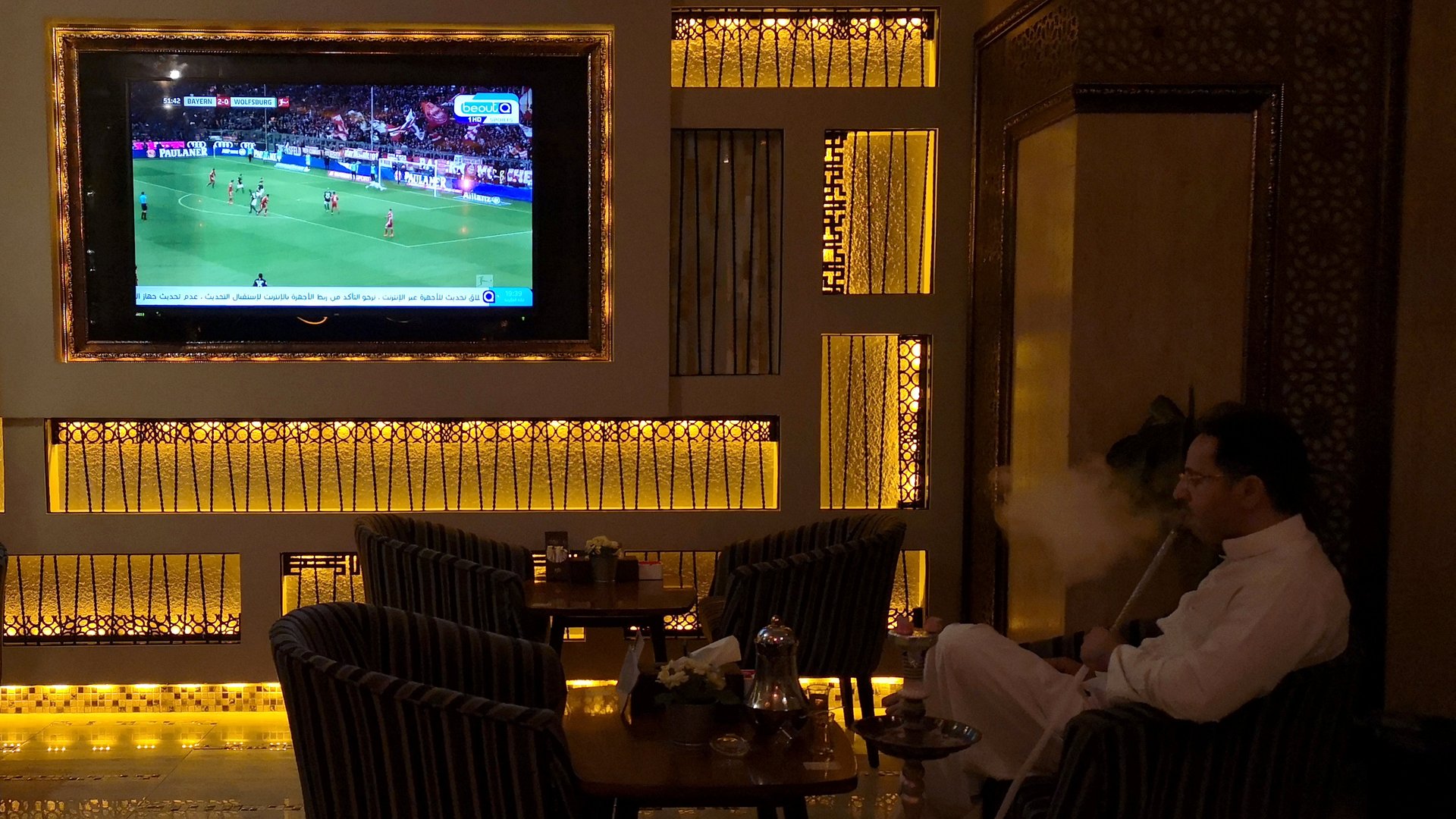How Saudi space piracy could scotch a $375 million football deal
Yes, there are space pirates. They live in Saudi Arabia.


Yes, there are space pirates. They live in Saudi Arabia.
During the “golden age” of piracy in the 17th and 18th centuries, most pirates were emanations of state power—privateers, in other words, commissioned by governments to wreak lucrative havoc on enemy shipping and colonies.
The same appears to be true today, though modern pirates prey on data streaming through the space lanes, not galleons sailing with the trade winds.
In 2018, Saudi Arabia was feuding with Qatar over the small country’s independent foreign policies and relationship with Iran. The Saudis blockaded the tiny state and imposed a variety of sanctions on it. One of them was tolerating the presence of a broadcaster that stole video transmissions from Qatar’s flagship satellite sports network, beIN sports, along with US and European television broadcasts.
The pirate station, called beoutQ (get it?) intercepted transmissions of the 2018 World Cup and Grand Slam tennis matches and made them available online. Then it stepped up, redistributing the feeds on the Arabsat satellite TV network, headquartered in Riyadh. Despite legal efforts from FIFA, the international soccer governing body, and the International Tennis Association, not to mention beIN, the Saudi government didn’t take action to prevent theft of the multi-million dollar sporting broadcast rights.
That left the Qataris to turn to the World Trade Organization, which ruled this week that the Saudi government did not take sufficient action to prevent the theft of intellectual property in its territory. But like much international law, on earth and in space, the ruling’s effect remains nebulous, and the Saudis plan to appeal. In one sense, it’s just more evidence that the oil power can flout any norms, whether murdering foreign journalists or imprisoning its own citizens during a coup.
For beoutQ, a bigger obstacle than the law is likely to be the Saudi government’s desire to buy Newcastle United, a soccer team that plays in the lucrative English Premier League, for a bid reported to be $377 million. The league, considered the world’s most important club football competition, filed its own challenge against beoutQ and is heavily dependent on global broadcast revenue—exactly the business model the Saudis undermined.
The decision also highlights the risks faced by space companies like Lockheed Martin, which recently signed a deal to build out a satellite communications ground system for the Saudis. Lockheed is not known for worrying about human rights, but one of its clients effectively stealing from other satellite operators might be a problem, especially for a multi-national firm that depends on having its intellectual property protected abroad.
Satellite communications remains the most sophisticated and lucrative business in orbit, but as this ongoing episode shows, it’s still dependent on creaky international institutions and power politics. It’s a preview of untidiness to come as more activity, human and electronic, becomes reliant on technology in space
A version of this story was first published in Quartz’s Space Business newsletter.